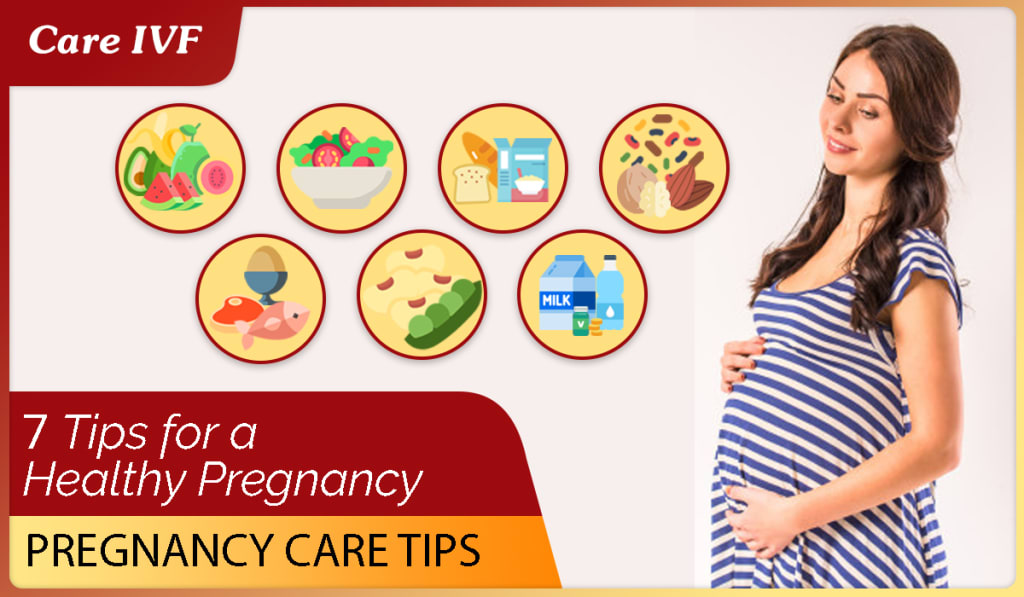Diet and Dieting Tips During Pregnancy
Understanding Pregnancy and Its Three Trimesters

Diet and Dieting During Pregnancy: A Comprehensive Guide
Hello, Friends! Today, we will be discussing a topic that is often surrounded by confusion and concern - diet and dieting during pregnancy. Many expectant mothers find themselves bombarded with questions about what they should eat, what to avoid, and conflicting advice from well-meaning family members. In this article, we will delve into the scientific principles behind pregnancy nutrition and offer practical tips for a healthy and enjoyable journey to motherhood.
I. Understanding Pregnancy and Its Three Trimesters
Pregnancy is divided into three trimesters, each lasting around three months. The first trimester is crucial for fetal development, but dietary changes need not be drastic during this period. Expectant mothers can continue with their usual diet while ensuring they meet their daily nutritional requirements.
II. Addressing First Trimester Concerns
In the first trimester, some women experience morning sickness and find it challenging to eat conventionally. It's essential to listen to your body and not force yourself to eat if you're not feeling well. Instead, focus on consuming small, nutritious meals that suit your preferences.
III. Nutritional Requirements in the Second and Third Trimesters
As pregnancy progresses into the second and third trimesters, the demand for calcium, iron, and other nutrients increases. The extra requirement can be met by adding approximately 300 kilocalories to your daily intake. Cravings and appetite may also change, and it's crucial to satisfy hunger with wholesome foods.
IV. Foods to Avoid During Pregnancy
While many foods are safe for consumption during pregnancy, some should be avoided or consumed in moderation. For instance, it's best to limit caffeine intake, including coffee, and ensure that non-vegetarian dishes come from trusted sources to avoid harmful hormones.
V. Importance of Hydration and Fruits
Staying hydrated is vital during pregnancy to support the body's functions and prevent issues like constipation. Fruit juices, though generally healthy, should be consumed in moderation due to their sugar content.
VI. The Goodness of Dry Fruits
Dry fruits like almonds and makhana are excellent sources of calcium and can be included in the diet. However, moderation is key, as excessive consumption may lead to unnecessary weight gain.
VII. Managing Diabetes and Weight Concerns
For pregnant women with diabetes or weight concerns, a balanced diet is essential. Controlling the intake of sweets and indulgent treats is advised, while foods with iron and calcium should be prioritized.
VIII. The Role of Jaggery
Jaggery is a nutritious alternative to refined sugar, as it contains iron. However, pregnant women with diabetes or other medical conditions should consume it in moderation.
IX. Consulting a Doctor and Doing Personal Research
While this article provides valuable insights, it's essential to remember that every pregnancy is unique. Always consult your healthcare provider for personalized advice on your dietary needs and restrictions.
Conclusion
Pregnancy is a transformative and beautiful phase in a woman's life. Embracing a healthy and balanced diet can contribute significantly to the well-being of both the mother and the baby. By listening to your body, making informed choices, and seeking professional guidance, you can ensure a safe and enjoyable journey to motherhood.
FAQs (Frequently Asked Questions)
1. Is it safe to drink coffee during pregnancy? While a small amount of caffeine is generally considered safe, it's best to limit coffee intake during pregnancy to one cup a day.
2. Can I eat non-vegetarian food during pregnancy? Yes, you can consume non-vegetarian food, but ensure it comes from reputable sources and is free from harmful additives.
3. How much water should I drink during pregnancy? Drinking two to three liters of water daily is generally recommended during pregnancy to stay hydrated.
4. Are dry fruits good for pregnant women? Dry fruits like almonds and makhana are nutritious and can be included in moderation as part of a healthy diet.
5. Can I indulge in ice cream and chocolates during pregnancy? While occasional treats are fine, it's essential to avoid excessive consumption of sugary and fried foods to maintain a balanced diet.
X. Staying Active During Pregnancy
In addition to a balanced diet, staying physically active during pregnancy is essential for maintaining overall health. Engaging in low-impact exercises such as prenatal yoga, walking, and swimming can help improve circulation, reduce stress, and promote better sleep.
XI. The Importance of Prenatal Supplements
While a nutritious diet forms the foundation of a healthy pregnancy, prenatal supplements can provide additional support. These supplements typically contain essential vitamins and minerals like folic acid, iron, calcium, and omega-3 fatty acids, which are crucial for the baby's development.
XII. Dealing with Pregnancy Cravings
It's common for expectant mothers to experience cravings for specific foods during pregnancy. While indulging in occasional cravings is fine, it's essential to strike a balance and not give in to unhealthy or excessive cravings.
XIII. Foods to Relieve Common Pregnancy Symptoms
Certain foods can help alleviate common pregnancy symptoms such as nausea, constipation, and heartburn. Ginger, for example, may help ease nausea, while fibrous fruits and vegetables can aid in relieving constipation.
XIV. Listening to Your Body's Signals
Pregnancy is a unique journey, and each woman's body reacts differently to the changes. Listening to your body's signals and being mindful of how specific foods make you feel can guide you in making the right dietary choices.
XV. Preparing for Postpartum Nutrition
While focusing on a healthy diet during pregnancy is crucial, it's also essential to prepare for postpartum nutrition. Adequate nourishment during the postpartum period is vital for healing and supporting breastfeeding, if applicable.
________________________________________
In conclusion, a well-balanced and nutritious diet plays a vital role in ensuring a healthy pregnancy journey. Embracing a variety of wholesome foods while being mindful of individual preferences and dietary restrictions can provide the necessary nourishment for both the mother and the developing baby.
Remember, pregnancy is a natural process, and with the right care and attention to your diet, you can enjoy a smooth and healthy pregnancy journey.If you have more questions or need further information on pregnancy nutrition, please feel free to comment below. Thank you for reading, and best wishes for a happy and healthy pregnancy!
About the Creator
Enjoyed the story? Support the Creator.
Subscribe for free to receive all their stories in your feed. You could also pledge your support or give them a one-off tip, letting them know you appreciate their work.






Comments
There are no comments for this story
Be the first to respond and start the conversation.